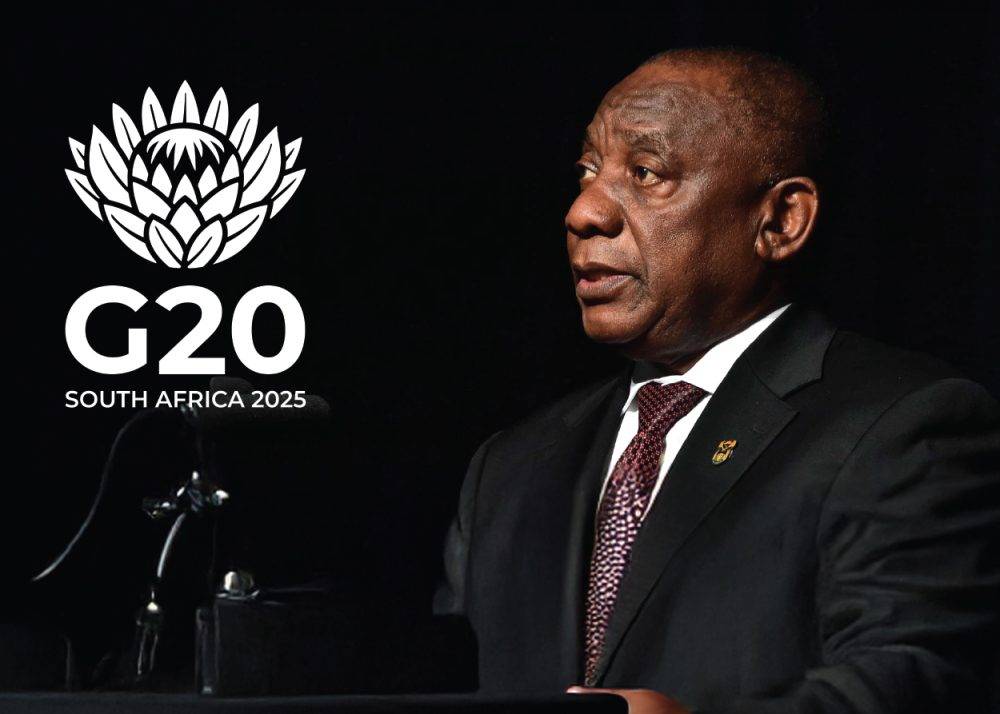
At a time of global uncertainty and deepening polarisation, South Africa is offering something rare: the courage to lead without dominating, and the ability to unite without demanding uniformity. As the country prepares to host the G20 Summit in November 2025, under the theme “Solidarity, Equality, Sustainability”, South Africa is not only stepping into the spotlight but doing so with a clear message — that it is ready to host the world again, grounded in experience, integrity, and vision.
While much of the focus has been on the rotating G20 presidency itself, this moment marks something broader: the convergence of South Africa’s hosting capability, its role as a force in global diplomacy, and its growing economic credibility. This is about logistics and leadership — something South Africa has repeatedly proven it can deliver.
Proven Track Record: A Country That Can Host the World
From the 2023 Netball World Cup in Cape Town, to the Earthshot Prize, the AGOA Forum, and multiple BRICS Summits, South Africa has shown, time and again, that it can host global events at the highest standard. These have delivered infrastructure upgrades, boosted tourism, created jobs, and left lasting legacies — building national confidence and global trust.
Johannesburg, the host city for the G20 Summit, is ready. As the country’s economic engine, Johannesburg is equipped with world-class conferencing facilities, a robust hotel network, and Africa’s busiest aviation hub — OR Tambo International Airport. Local authorities are already implementing beautification projects and infrastructure upgrades to ensure the city is summit ready.
Meanwhile, Durban’s International Convention Centre will again host Africa’s Travel Indaba in May 2025, one of the largest tourism trade shows on the continent. Drawing thousands of delegates, this high-level event continues to showcase South Africa’s tourism infrastructure — a timely demonstration of readiness ahead of the G20 Summit.
Hosting with Purpose: A Leadership Agenda
South Africa’s bid to host the world goes beyond logistics — it is underpinned by a values-driven leadership agenda. The country is bringing a bold but thoughtful vision focused on equity, reform, and cooperation. Its advocacy for Africa’s permanent seat at the G20, successfully realised in 2023, was a major diplomatic milestone.
South Africa has consistently framed its G20 presidency not as a national milestone alone, but as a broader opportunity to elevate Africa’s voice in global affairs — a role it embraces with both pride and responsibility.
This leadership style — cooperative rather than coercive — reflects a long-standing commitment to multilateralism. During the COVID-19 pandemic, South Africa chaired the African Union and championed the TRIPS waiver at the WTO, allowing countries to produce COVID-19 vaccines, treatments, and tests more affordably without breaching patent protections. It advocated for fairer development finance, mobilised access to vaccines and funding, and amplified the voice of the Global South in recovery efforts. It also played an active role in mediating peace in Tigray and South Sudan.
Sovereign and Strategic: A Diplomatic Balancing Act
What makes South Africa’s leadership distinctive is its sovereign stance in foreign policy — principled, but also pragmatic. In a polarised world, South Africa has maintained open diplomatic channels across power blocs, engaging the South, the West and the East without compromising its values.
The 2023 BRICS Summit in Johannesburg underscored this balancing act. South Africa successfully pushed for the bloc’s expansion — including the entry of Saudi Arabia, the UAE, Argentina, and Egypt — reinforcing a vision of multipolar cooperation.
South Africa has also taken bold legal steps. In 2024, it filed a genocide case against Israel at the International Court of Justice over actions in Gaza — a move that drew support from countries including Ireland, Mexico, and Namibia. This was not just symbolic, it cemented South Africa’s role as a country willing to stand for justice, even in the face of geopolitical pressure.
South Africa’s diplomatic weight is further enhanced by its consistent moral positioning on international issues. From pushing for ICC reform to mediating regional conflicts, the country has acted as a stabilising force on the continent and beyond. It has helped craft a uniquely African approach to diplomacy: value-based, consultative, and consensus-driven. UN Secretary-General António Guterres has publicly commended South Africa’s efforts, saying the country “represents the kind of diplomacy the world needs more of — courageous, principled, and inclusive.”
Economic Momentum Bolsters Credibility
South Africa’s return to the global centre stage comes amid renewed investor confidence. The country jumped from 11th to 7th place on Kearney’s 2025 Emerging Markets FDI Confidence Index — the first time South Africa has broken into the top 10. This shift reflects an economy that is stabilising and reforming, underpinned by targeted investment in infrastructure, green energy, and manufacturing.
In 2023, South Africa surpassed its investment target, securing over R1.5 trillion (approximately $100 billion) — 26% above its original five-year goal. Foreign direct investment is rising in strategic sectors like automotive production, hydrogen, digital infrastructure, and mining beneficiation — building a compelling case that South Africa is not only a destination for diplomacy but for business.
As the world prepares to descend on Johannesburg for the G20 Summit, one thing is clear: South Africa is not only ready to host — it is ready to lead. Its ability to combine hospitality with hard policy, and experience with ethical direction, makes it uniquely positioned to guide the G20 at a time when the world craves vision and unity.
This is more than a moment of prestige. It’s a signal of return — of a nation reasserting itself, not through dominance, but through principle and purpose. Stay up to date on the G20 with Brand South Africa



